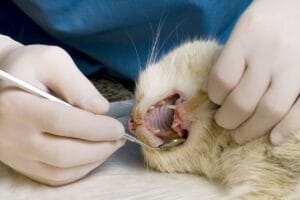How to Stop Your Cat from Licking Her Stitches
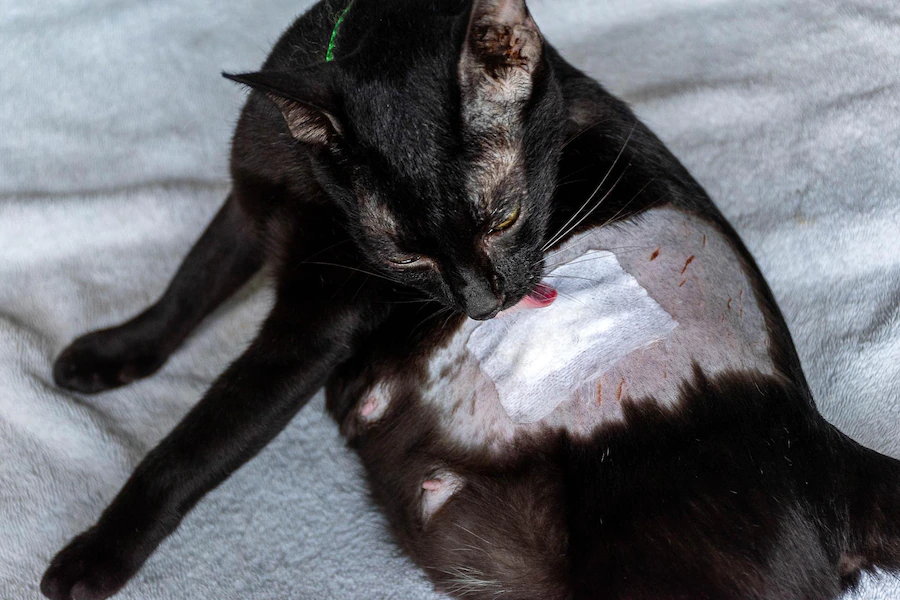
Having trouble trying to stop your Cat from licking her stitches? Read further to find out how to stop it!
Cats have a natural tendency to lick and groom themselves, but this behavior can be harmful when they have stitches from a recent surgery or wound. Cat tongues are quite rough and can cause the stitches to come loose by repeated licking. Furthermore, Cat saliva contains bacteria that can infect and further worsen the wound if it comes into contact with it.
Lucky for us, there are many easy (and cheap!) solutions to solve this problem.
Why is your Cat licking its stitches?
You should first try and understand “why” your Cat is licking its stitches. For the most part, Cats groom themselves as a way to keep clean and maintain their fur. However, when it comes to stitches, their licking behavior serves multiple purposes beyond grooming alone.
- Grooming Instinct:
Cats have an inherent grooming instinct that prompts them to clean themselves regularly. It’s a way for them to maintain their hygiene and keep their fur free from dirt, debris, and odors. When your cat has stitches, she may instinctively attempt to groom the area, including the stitches, as a part of her natural routine.
- Alleviating Discomfort:
Licking the stitches can provide temporary relief from any discomfort or itchiness caused by the healing process. As the wound begins to heal, it is common for the area around the stitches to become itchy. By licking, your cat aims to alleviate the itch and find relief. However, excessive licking can be detrimental to the healing process and increase the risk of complications.
- Self-Soothing and Stress Relief:
Grooming is not only about physical cleanliness for cats but also serves as a self-soothing and stress-relieving behavior. When faced with the stress and discomfort associated with surgery and the healing process, cats may resort to grooming as a way to comfort themselves. Licking releases endorphins that provide a sense of relaxation and well-being for your cat.
- Sensitivity to Change:
Cats are known for their sensitivity to environmental changes, and surgery can disrupt their sense of normalcy. The presence of stitches, bandages, or changes in routine can cause stress and anxiety in cats. Licking the stitches may be their way of coping with the changes and finding a sense of control in their surroundings.
5 Easy ways to stop your Cat from licking her Stitches
1. Bandage the Wound (Stitches)
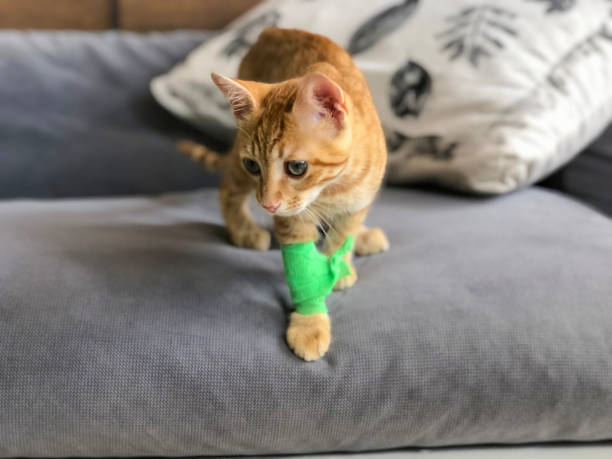
One of the simplest ways to stop your cat from licking its stitches is to bandage the wound properly. This not only keeps the stitches covered but also provides extra protection for the wound.
It’s important to choose a bandage that is breathable and non-adhesive, so it does not stick to the fur or skin. You should also make sure to keep the bandage clean and dry (cat saliva!!!) and change it regularly to avoid infection.
2. Use a Cone Collar
The cone collar, also known as the “cone of shame,” is a (usually) plastic collar that fits around your cat’s neck and prevents them from being able to reach its stitches. These collars can be uncomfortable for your cat at first, but they are highly effective at preventing licking or scratching of the wound (or stitches).
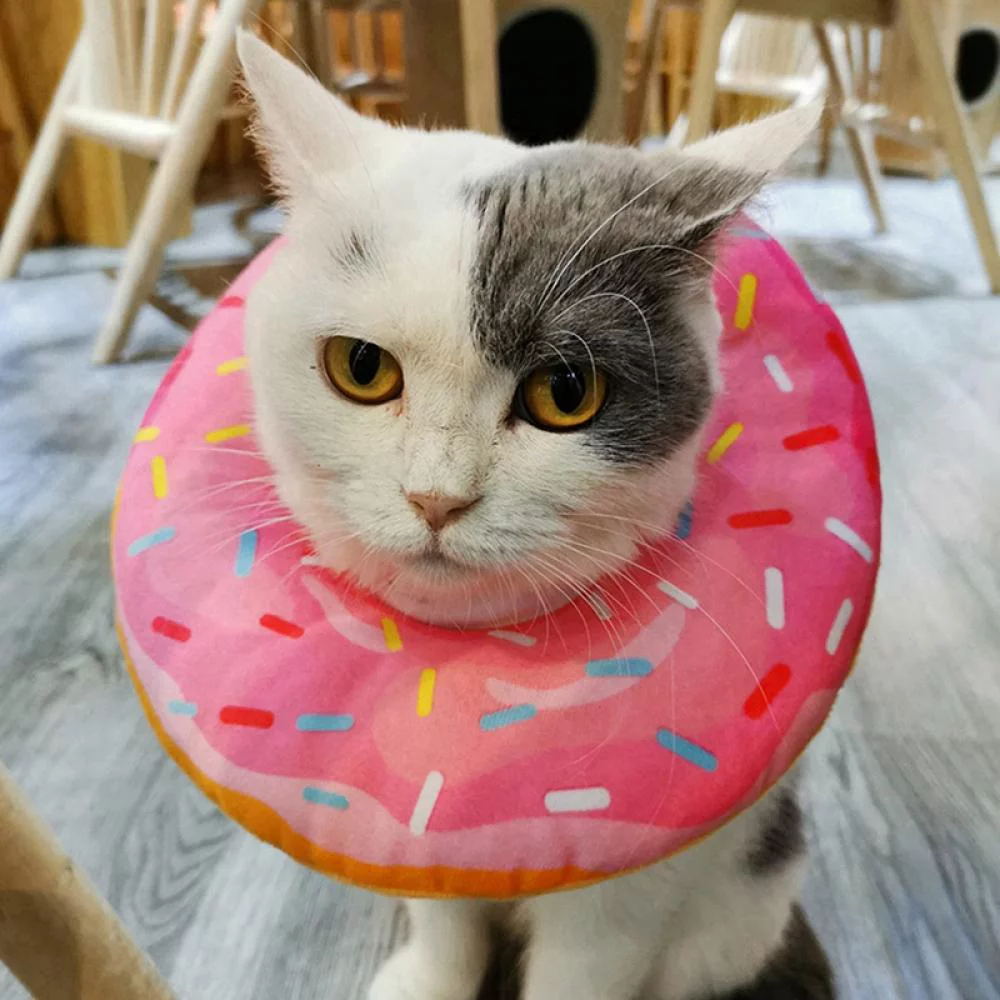
There are many kinds of Neck collars available, like the donut-shaped one you can see in the image above. There are also “soft collars” which are not as hard as plastic collars, and are designed to maximize comfort.
You can try several of them on your Cat until you find one that they are comfortable wearing (after the initial discomfort wears off).
Make sure to adjust the collar properly to ensure that it is not too tight and that your cat can still eat and drink without difficulty.
3. Apply Special Ointments
There are certain ointments and sprays that are specially formulated to discourage cats from licking their stitches. These products typically contain a bitter or unpleasant taste that makes the area unappealing to your cat.
Be sure to consult with your veterinarian first, before using any ointments!
4. Cat Shirts or Onesie
If you are a Cat lover, chances are that you already have one of these lying around. There are many types of clothing available for cats, including shirts, jackets, and onesies.
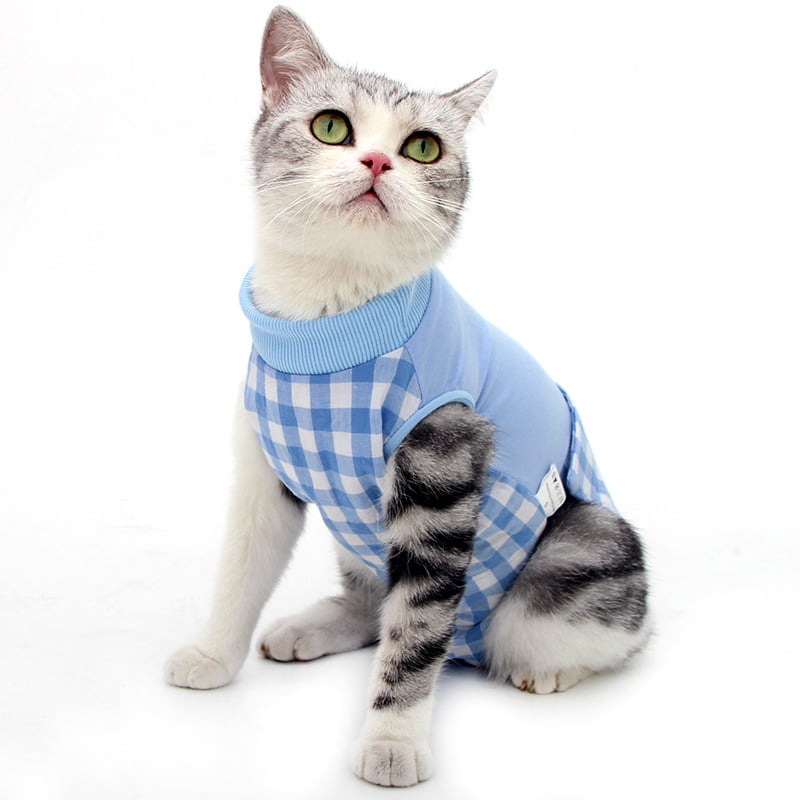
These clothing items cover the stitches and make it more difficult for your Cat (or its tongue) to reach the area. You can also find shirts and onesies that are specifically designed for cats recovering from surgery. They are made with a comfortable and breathable material that will not irritate or cause discomfort to your cat.
(More importantly, it makes your cat look stylish too)
5. Distract and Engage
Redirecting your cat’s attention to alternative activities can divert its focus from licking. Interactive toys, such as puzzle feeders or treat-dispensing toys, can engage your cat’s mind and occupy its time. Regular play sessions with interactive wand toys or laser pointers can also provide mental and physical stimulation, helping to reduce stress and boredom.
Conclusion
Getting your cat to stop licking her stitches can be a challenging task. Remember to understand your cat’s behavior, use preventative measures such as an Elizabethan (cone) collar, distract your cat, provide extra attention and comfort, and manage pain and discomfort. With patience and dedication, your cat will be able to heal and recover in no time.
And always consider consulting with your veterinarian for the best approach for your cat’s condition, especially if the situation worsens or becomes uncontrollable.


